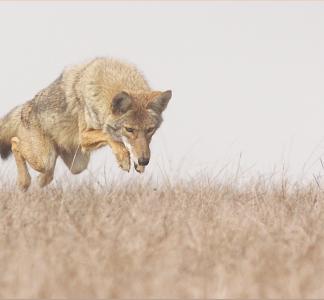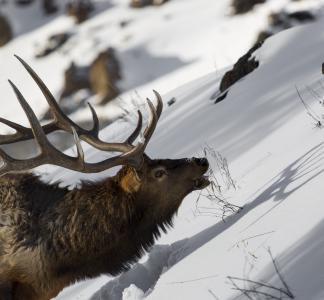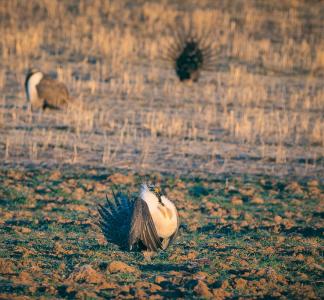Interior Sec. Bernhardt pays lip service to protecting big game but his policies do the opposite
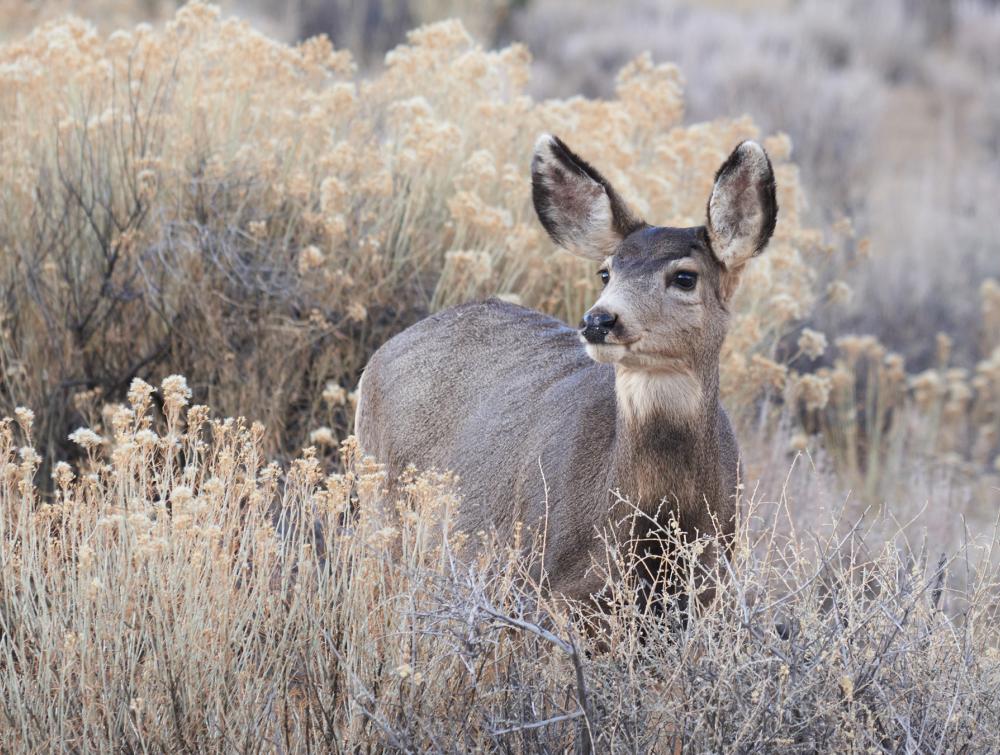
A mule deer in the Ruby Mountain/Railroad Gulch ACEC, Colorado
Jon Mullen
Secretarial order at odds with anti-wildlife policies
Acting Interior Secretary David Bernhardt announced March 6 that he is expanding a secretarial order that directs the agency to preserve migration corridors and seasonal habitat for big game species like elk, pronghorn antelope and mule deer (Bernhardt added a provision covering moose and bighorn sheep). But at the same time, the Trump administration’s “energy dominance” policies are steamrolling such areas, cutting off vital travel passages for wildlife increasingly pressured by the effects of climate change.
In the space of a few days, the Trump administration moved forward with plans to that would seriously damage wildlife populations and then claimed to be helping them survive
With an eye toward improving hunting opportunities, Bernhardt amended an order issued by then-Secretary Ryan Zinke in February 2018 to “better migration corridors for some of North America's most iconic big game species.” The original secretarial order was cautiously applauded by some conservationists and sportsmen. Indeed, research illustrates that land kept free of undue human interference allows species to maintain “habitat connectivity,” building populations that are stronger, healthier and more adaptable. With climate change forcing plants and animals to shift their habitat, maintaining a connected network of land for them to do so is an important priority, and the secretarial order seemed to be a positive step in that direction.
However, a Center for American Progress (CAP) report from February 2019 showed that under the Trump administration, oil and gas lease sales offered in key western states by the Bureau of Land Management (BLM)—a division of the Interior Department—are interfering with migration corridors for some of the same species.
CAP found that nearly 1 in 5 lease sales was in an area identified by the states as an important migration corridor or wintering ground for big game species. In New Mexico, a shocking 82 percent of energy leases examined were on priority areas for pronghorn, mule deer and elk.
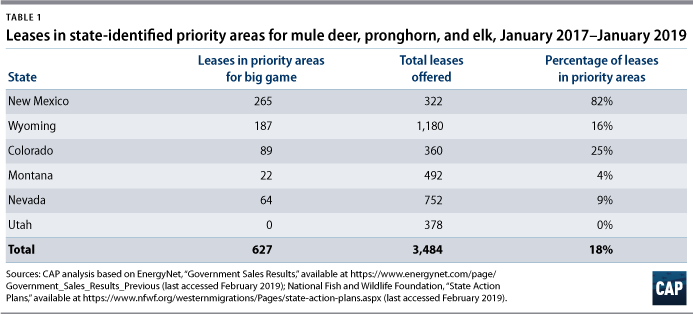
Since the start of the Trump administration, the BLM has offered more than 3,400 oil and gas leases in the Intermountain West
Center for American Progress
In fact, less than one week prior to Bernhardt’s order, the BLM sold energy leasing rights on more than half a million acres of land in Wyoming containing important habitat for the embattled greater sage-grouse, whose population strength is considered a key indicator of the overall wellness of the sagebrush steppe ecosystem. Those leases also overlapped with the Red Desert to Hoback migration corridor, which is used by mule deer to travel from low-elevation to high-elevation ranges as winter cedes to summer. Development and property barriers pose difficulties for the deer as it is, and new energy projects would cause a major disruption (mule deer populations in Wyoming have already declined sharply in regions with heavy oil and gas drilling).
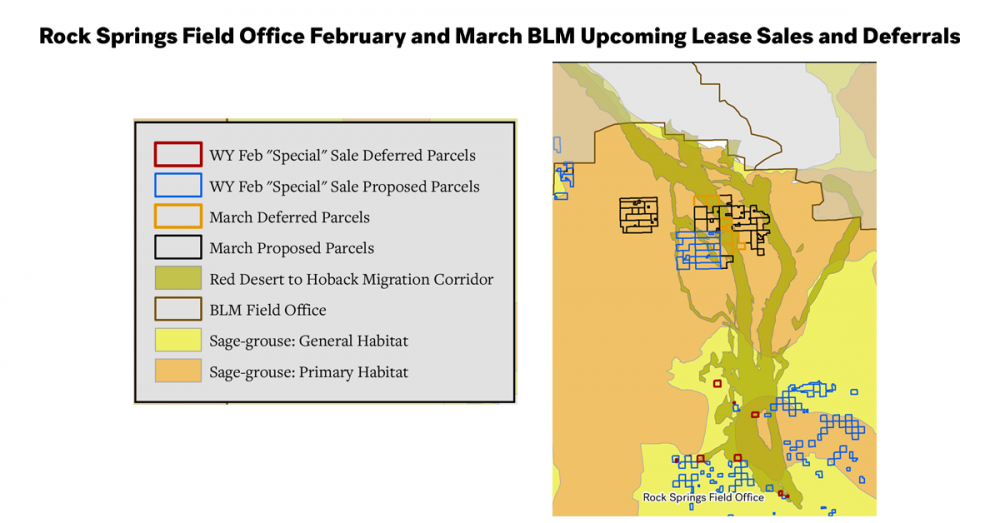
Both the Red Desert to Hoback migration corridor (olive-green path) and sage-grouse habitat (orange and yellow patches) would be disrupted by upcoming Bureau of Land Management lease sales
TWS
The bottom line: in the space of a few days, the Trump administration both trumpeted its work to help animals adapt and survive, and actively moved forward with plans that would impede such animals—potentially dropping drilling rigs and other development right in their path.
Without clear and well-buffered migration corridors, Wyoming and other western states will not be able to maintain the robust big-game populations that draw hunters and wildlife viewers from across the country—ostensibly the very same values Zinke and Bernhardt have sought to preserve. This episode is yet another indication that for the sake of our wild lands and waters and the living things that depend on them, we must oppose the confirmation of David Bernhardt to become Secretary of the Interior.
Map shows the wildest land linking protected areas of the U.S.
Adit the Stargazer, Flickr
Study: for migrating elk, moose & other species, wilderness is vital
Neal Herbert, NPS
New maps show Interior Department overtaking sage-grouse habitat with oil and gas leasing sales
Mason Cummings, The Wilderness Society
